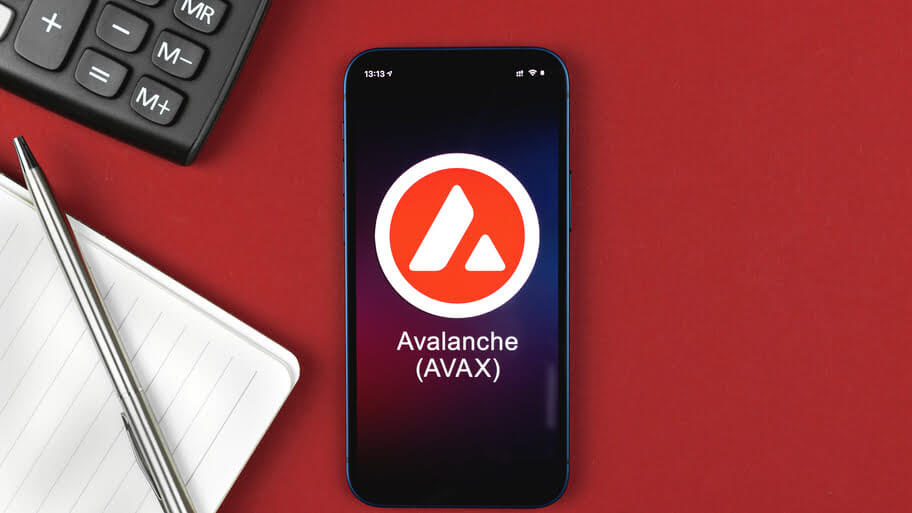The Avalanche platform has opened up passive income opportunities with the introduction of the staking mechanism. This is used to help the holders of the native token (AVAX) to earn rewards for delegating their tokens to the Avalanche network for the improved security of the network.
What Does it Mean to Delegate Avax?
By delegating Avax, you are locking up your tokens to signify your readiness to be a part of the group of Avax holders that support the security of the network. The staking process was conceived as part of a series of efforts to reduce the probability of the success of an attack on the network by ensuring that a well-defined monetary cost function is in place.
In the case of the Avalanche platform, the holders of the Avax token can now put those tokens to work to secure the network while Avalanche reciprocates by rewarding the delegators with passive income.
How to Stake Your Avax Tokens
To stake your Avax tokens, you have to decide on the role you want to play in the security of the Avalanche network. The two major roles are:
-
-
- Validator
- Delegator
-
As a Validator, your role includes but is not limited to:
-
-
- Operating a node and validating the primary network.
- Achieving consensus.
- Creating new vertices/blocks.
- Processing transactions.
-
The role of the Delegator in the Avalanche network includes:
-
-
- Delegating your Avax tokens to a Validating node to signify trust.
- Participating in staking and earning rewards in the process.
-
Important Inputs to Have in Mind Before Delegating Your Avax Tokens
Whether you want to be a CCN Validator or simply delegate your Avax tokens to a Validator, you have to take note of the following inputs:
-
-
- Node ID: You have to specify the ID of the node you are validating or the one you are delegating your Avax tokens to. This is a unique ID derived from the staker certificate of each node.
- Start and End Time: This refers to the time or duration when you want to activate and complete the validation/delegating process. For Delegators, the start and end time needs to correspond with the time/duration during which the Validator is running the node.
- Avax Tokens for Staking: The amount of Avax tokens to be used for the delegation also needs to be specified. If you are a Validator, you are required to stake a minimum of 2,000 units of the Avax token. But if you are a Delegator, only 25 Avax tokens need to be staked.
- Delegation Fee: This is the fee charged by the Validator and is to be paid by each Delegator that wants to delegate Avax tokens to the Validator’s nodes. The minimum delegation fee is 2%.
- Reward Address: The reward address is the destination address where the rewards earned by both the Validator and Delegator would be sent.
-
How to Delegate Avax Tokens
Follow these steps to start delegating your Avax tokens on the Avalanche network:
-
-
- Open Your Avalanche Wallet
-
The first step is to open your Avalanche Wallet. Make sure you have a copy of the key phrase and other important information, such as the Keystore file so you don’t lose access to the wallet.
-
-
- Get the Funds Ready
-
You need Ethereum (ETH) to transact via the Avalanche Wallet. There are two chains here – the Platform Chain (P-Chain) and Exchange Chain (X-Chain). The funds need to be in the P-Chain.
Also, you can use Avax Bridge (AB) to transfer Ethereum (ETH) assets to Avalanche. This can be done by connecting the AB directly to the MetaMask digital wallet from where you can make the asset transfer faster and cheaper.
Confirm that the Ethereum (ETH) assets are already deposited in the P-Chain before continuing. But if you are using Avax tokens, all you have to do is to make a cross-chain transfer of the tokens from the X-Chain to the P-Chain.
-
-
- Choose Your Role
-
Now, choose the role you want to play in the safeguarding of the Avalanche network. You can either be a Validator or a Delegator.
As a Validator, you have to build a node from scratch or use the Avalanche Binaries to set up one.
As a Delegator, all you have to do is to choose from the list of available Validators, take note of the start and end time for the node validation and enter the amount of Avax tokens you want to stake.
How Much Can I Earn from Delegating Avax?
Whether you are a Validator or Delegator, it is possible to earn money on the side while helping in bolstering the security of the Avalanche network.
According to Avalanche, the estimated Annualized Percentage Yield (APY) for Validators is 11%. Aside from that, Avalanche Validators can also make some money on the side, especially when they set the fee they are willing to accept before accepting Delegators to participate in the node(s) they are running.
The data sourced from Staking Rewards shows that Avax holders who wish to lend their tokens to either the Validators or Delegators could earn up to 15% APY.
Benefits of Delegating Avax
Here are some of the advantages of delegating your Avax tokens, whether as a Validator or Delegator:
-
-
- Help Secure the Avalanche Network
-
The primary reason for delegating Avax tokens is to help in protecting the broader Avalanche ecosystem. With newer projects being built on its blockchain, it is pertinent to make the ecosystem risk-free.
You can use Avax Explorer to keep tabs on important information about the network, such as the projects built on the network and the transactions recorded on the native blockchain. This gives you an idea of the traction gained by the Avalanche network – and in extension, the need to keep it secure to keep the momentum going.
-
-
- Avax Token Scarcity
-
The scarcity of the Avax token is also assured because the transaction fees are not paid to the Validators. Instead, the fees generated from transactions are burned, thereby, leading to an increase in the value of the token.
This can also come in handy when making Avax price predictions based on the volume of transactions, the total number of Validators participating in the network, and the rewards distributed.
-
-
- Avalanche does not Use Slashing
-
Unlike some of the other Proof-of-Stake (PoS) ecosystems, the Avalanche network doesn’t use the Slashing consensus mechanism. This mechanism is commonly used to deduct some staked tokens from Validators who might experience some challenges during the validation duration.
By erasing this mechanism from the network, the Avalanche network removes unpredictability from the equation and returns all staked Avax tokens to the addresses provided by the Validators.
Final Thoughts: You Can Earn Passive Income from Delegating Avax
If you don’t like trading crypto, the staking opportunities offered by Avax could just be what you need to earn money from the cryptocurrency market without being fully active. Choose a role (Validator or Delegator), meet the requirements, and start earning as a delegator on the Avalanche network. Now that you’re informed about how much you can earn delegating Avax make your choice about whether or not to get involved in the project.
Featured Image: Megapixl








